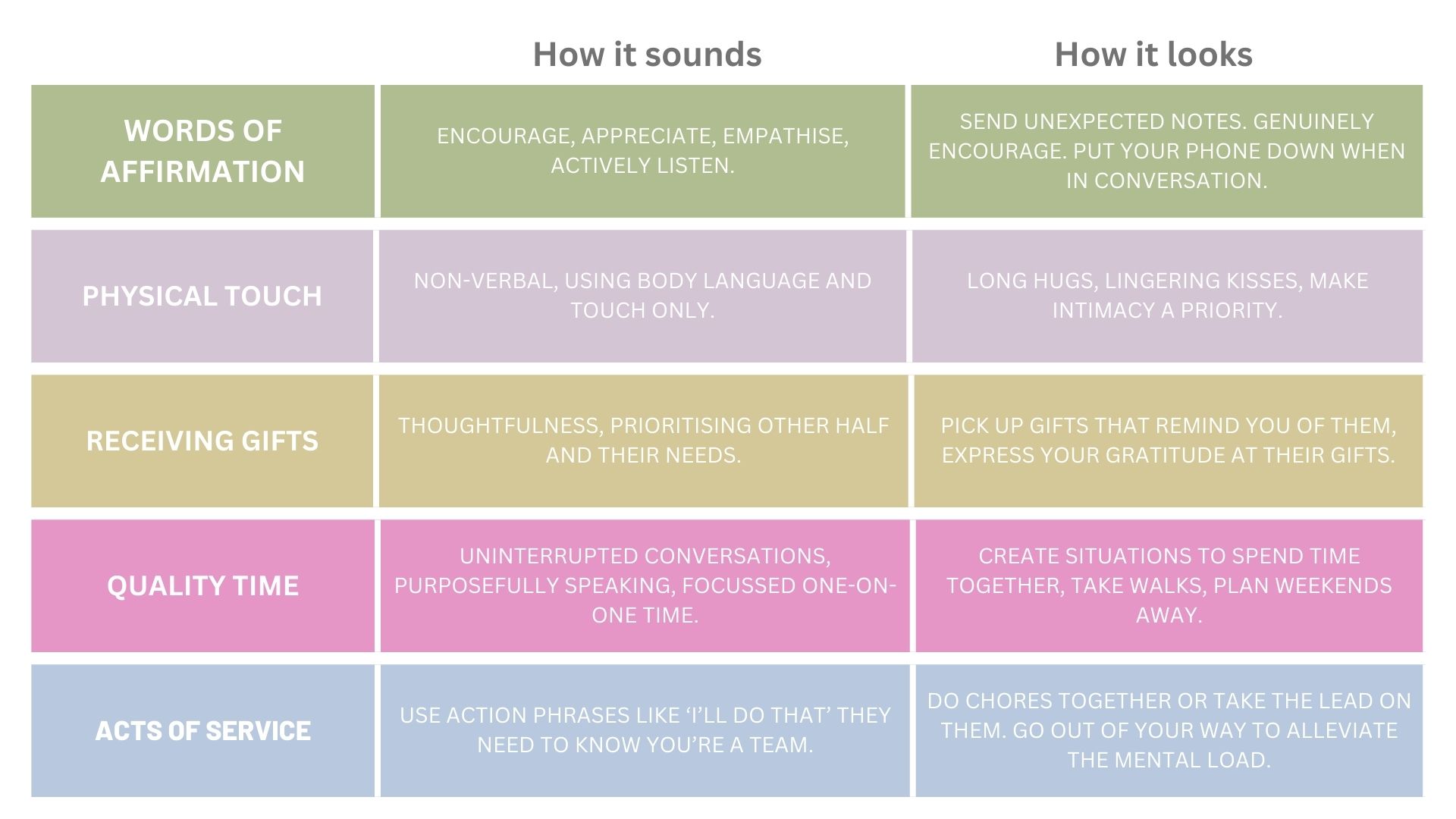
Parenting advice, hot topics, best buys and family finance tips delivered straight to your inbox.
You are now subscribed
Your newsletter sign-up was successful
Once you're in charge of tiny humans Valentine's Day can look a little different, I’m a busy mum with a portfolio career and a full schedule of kids’ activities to manage and the food shop to stress over, so Valentine’s Day is not high on my list of priorities - but my love language always is.
Understanding your love language and leaning into Valentine's Day can help if you're looking to spice up your relationship, for so many parents romance falls short when there’s a playdate to organise and an iPad to prise from toddler fingers, but if you're keen to get it back you could try some at home Valentine's Day ideas (we all know just how pricey good babysitters can be) and if you're not sure what Valentine's Day gifts to ask for then hear me out - as a women's health expert and sex positivity advocate I know what I'm asking for Valentine's Day this year, so let's talk about this....
While Valentine's Day is at the bottom of my list, I still reserve the right to be angry when my husband forgets to mark this oh-so-special occasion. Because my love languages are acts of service and words of affirmation, both of which are prime Valentine’s Day fodder.
5 love languages explained
- Words of affirmation
- Acts of service
- Receiving gifts
- Quality time
- Physical touch
What do I mean by Love Languages? Well, Gary Chapman - author, speaker, and counsellor - originally wrote about The Five Love Languages in his 1992 book (available from Amazon, £11.79), detailing the different ways in which we give and receive expressions of love. It’s different for most of us and the tricky thing in a relationship is that sometimes it’s different for each partner. While you may think you’re being extra adoring to your partner by telling them you love them each day, they might prefer you to snuggle up on the sofa for a long kiss instead because their love language is 'physical touch'. So, contrary to the greetings card industry, most of our hearts probably won’t be set alight by miniature teddies clutching hearts or a last-minute box of chocs and some flowers from the petrol station.
Words of affirmation - Encourage, appreciate, empathise, and actively listen. Do this by sending unexpected notes, and putting your phone down when talking to them.
Acts of service - Use action phrases like 'I'll do that' and 'I'll help'. Then need to hear and see you're on the same team. This looks like doing chores together or taking the lead on chores. And going out of your way to alleviate the mental load for your partner.
Receiving gifts - This is thoughtfulness, prioritising your partner and their needs. You can do this by picking up little gifts that remind you of them, and expressing your gratitude when you get gifts from them.
Parenting advice, hot topics, best buys and family finance tips delivered straight to your inbox.
Quality time - Uninterrupted conversations, purposefully speaking, and focused one-on-one time. This looks like creating situations to spend time together, taking walks, and planning weekends away.
Physical touch - Non-verbal, using body language and touch alone. This can look like long hugs, lingering kisses, and prioritising intimacy.
We know that everyday life as a parent means that showing affection and appreciation for your other half falls way down the to-do list in favour of fighting parenting (or literal) fires. Now I know my love language, here’s what I’d appreciate for Valentine’s Day as a mum: to be left alone.

Yep, top of the list is alone time. The basic version would be for twenty minutes so I can have a hot cup of tea in peace and maybe read a chapter of my book. The luxe version would be a whole 24 hours away in a hotel. Following swiftly in second is booking a cleaner, even if you have one already, I bet another 'deep clean' session would be heaven. Anything to help alleviate the mental load, amIright?
I’d love to go five minutes without being asked for a snack, or what's for dinner, whether the after-school clubs have been paid or when's the kids' next dental appointment. And, if we’re going down the more traditional romance route, yes, my partner cooking me a nice dinner, with no prompting or advice on anything from me at all. But I’d also love it if he could clear up the kitchen afterwards, and maybe get the kids to help (a mum can dream).
Seriously though, communicating what you want and how you receive expressions of love is key to a Valentine’s Day without any rows. The Love Languages are: words of affirmation, quality time, receiving gifts, acts of service, and physical touch. If you don’t know yours, it’s worth taking the time to figure it out (there are plenty of helpful quizzes around), and of course, you might find that you or your partner are a mixture of more than one Love Language too. It’s about finding out what primarily speaks to you, and your other half.
Take the Love Language quiz
If you're now wondering 'hang on, what's my love language then?' you're in luck the clever Gary Chapman also devised an easy-to-take Love Language quiz you can take - with your partner - to nail what your own love language is. And once you’re clued up, it becomes easier to show your appreciation and love for the other person. Whether that’s on in your daily interactions, for when you’re thinking about organising date nights (imagine!), or when you’re buying gifts. All of which both save time (thank goodness) and lead to fewer misunderstandings (ahem, arguments). So might learning a bit more about your Love Languages just be a win-win all-round?
Even if you think it’s a bit out there, Love Languages might just be worth investigating so that you can fit a bit of romance into your parenthood schedule and prioritise yourself. And you might just get a Valentine’s Day gift that you want for once. Saint Val himself would be proud. Take the Love Language Quiz now.
Wonder why you've gone off sex and looking to add a bit more to your sex life, try our piece on Tantric sex or what is spooning and how it can increase intimacy levels.

Clio Wood is a maternal health and sex positivity advocate, journalist and author of Get Your Mojo Back, Sex, Pleasure and Intimacy After Birth (Watkins 2023). She is also the Founder of &Breathe, an award-winning women's wellbeing retreat company, which she started after her first daughter was born and noticed a lack of proper postpartum care. She lives in east London with her husband, Bryn, and daughters, Delphi and Echo, and loves unusual names, travelling, reading and eating too much ice cream.
